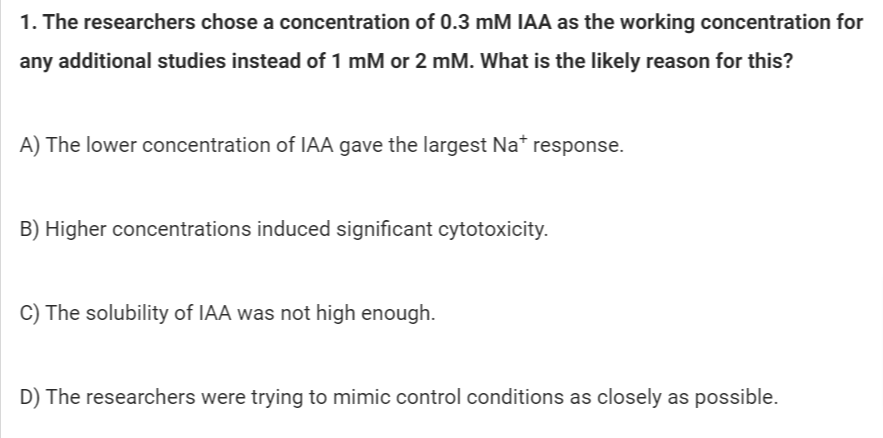The MCAT and LSAT are tests required for admission to higher learning. They also consist of multiple-choice items and need rigorous preparation.
But there are also many differences between these two tests. For instance, the MCAT takes twice as long as the LSAT.
To know more about MCAT Vs. LSAT, dive into this article!
Quick Summary
These are the most important things you must know about the MCAT and LSAT:
- Both are challenging exams whose results higher learning admissions consider. So, you must prepare for them.
- The MCAT is for med school applications, while the LSAT is for law school admissions. So, their content and question design differ.
- Neither the MCAT nor the LSAT is harder than the other. It depends on the student’s strengths and weaknesses.
- The MCAT takes twice as long as the LSAT. But it also has twice as many items.
- The LSAT scoring system is more complex than the MCAT.
MCAT Vs. LSAT Comparison
Here is a quick overview of the differences between the MCAT and LSAT:
Medical College Admission Test (MCAT) | Law School Admission Test (LSAT) | |
Purpose | Medical school application | Law school application |
Administering Body | Association of American Medical Colleges (AAMC) | Law School Admission Council (LSAC) |
Registration Fee | $320 | $467 |
Number of Test Dates | Multiple times a year | Multiple times a year |
Duration | 7.5 hours | 3 hours |
Multiple-Choice Section | Yes (230+ items) | Yes (~100 items) |
Guessing Penalty | ✘ | ✘ |
Writing Section | ✘ | Yes |
Score Range | 472 to 528 | 120 to 180 |
Unlimited Retake (Per Year) | ✘ | ✘ |
Similarities Between MCAT & LSAT
These are the similarities between MCAT and LSAT:
1. Standardized Test for Higher Learning
Both LSAT and MCAT are tests. Experts designed them to gauge a student’s readiness for higher learning.
However, the MCAT is for students who are entering medical school. So, the content leans toward scientific concepts.
Meanwhile, the LSAT is for law school admissions. It evaluates students’ critical and logical thinking skills.
2. Multiple Choice Questions
The MCAT and LSAT consist of multiple-choice questions. But the former has more of them.
MCAT consists of 230 multiple-choice questions across four different sections. All are scored as well.
In contrast, the LSAT contains only 100+ multiple-choice questions. They can be any of these three types:
- Logical reasoning
- Analytical reasoning
- Reading comprehension
- Variable/Experimental
The variable section can be any of the first three sections. So, in an LSAT, you may encounter analytical reasoning twice.
However, the variable section is not scored. It’s for the exam makers to see how examinees respond to new question formats.
You also won’t know which section is the experimental one. So, you’ll have to put in effort for all.
3. No Guessing Penalty
Some tests have wrong-answer or guessing penalties. You get a certain number of points knocked off your score for every wrong item you have.
It’s supposed to deter students from guessing. So, they’ll answer when they’re sure.
Neither the MCAT nor the LSAT has this policy. So, if you’re unsure about a question, you won’t have to skip it.
It’s even recommended to make a guess. After all, there’s still the lucky chance you’ll get right versus not answering at all.
4. Preparation Is Key
For either test, it’s not recommended to proceed blindly. Otherwise, you’ll risk paying hundreds of dollars for a low score.
Instead, students dedicate months to preparing for these exams. They may even invest in prep courses to sharpen their skills.

The more prepared one is for the MCAT or LSAT, the more likely they’ll score high. For many, a high score is crucial.
It ensures admission into top-tier schools or scholarship acceptance.
5. You Can Retake
MCAT and LSAT are not pass or fail exams. But the score you got may not be enough for you.
In that case, you can retake. But you must know that medical and law schools receive all scores.
So, you can’t hide the fact that you’re retaking or have lower scores before. The schools will still see and consider them in their deliberations.
Moreover, the MCAT and LSAT have different retake policies. For the LSAT, the retake limits are as follows:
- Five times within the current reportable score period (scores are reportable for five years after their release)
- Seven times within your lifetime
As for the MCAT, these are the retake policies:
- Three times within a year
- Four times within two consecutive years
- Seven times within your lifetime
Differences Between MCAT & LSAT
These are the differences between MCAT and LSAT:
1. Different Purposes
As I’ve said above, the MCAT is for aspiring medical students, while LSAT is for law school applicants. As they have different purposes, they have varying coverage.
For the MCAT, these are the skills it tests:
- Biological and Biochemical Foundations of Living Systems
- Chemical and Physical Foundations of Biological Systems
- Psychological, Social, and Biological Foundations of Behavior
- Critical Analysis and Reasoning Skills
Meanwhile, the LSAT evaluates these skills:
- Reading Comprehension
- Analytical Reasoning
- Logical Reasoning
- Writing
There are a few similarities in the exams’ coverages. For instance, they both test students’ critical analysis and reasoning.
But their focuses are different.
The MCAT drills students on their scientific knowledge and application.
Meanwhile, the LSAT gauges if a student has critical and logical skills. Those are most needed in law school.
2. Content
Here is a sample question from the MCAT:

This MCAT question is for the Biological and Biochemical Foundations of Living Systems section. There’s also a lengthy passage before it, as well as a reference chart.
To compare, this is a sample question from the LSAT:

This question is for the LSAT’s logical reasoning section.
First, I must establish that these sections cover different topics. However, they illustrate the differences in content that students often notice.
One such difference is that many find the MCAT more straightforward. You won’t have to worry about subtleties or word tricks that are intentional in the LSAT.
Another thing is that with the MCAT, you’ll need stock knowledge. Yes, there is a passage before the question.
But it won’t be enough for you to find the correct answer among the choices. For instance, you’ll still need to know what Na+ is and its purpose.
Meanwhile, you won’t need as much stock knowledge with LSAT. You have to analyze the passage and apply the facts it presents.
But don’t get me wrong – it’s not as easy as it sounds. Many describe the LSAT as testing how you think rather than what you know.
So, if you can’t analyze the LSAT’s tricky questions, you’re in as deep water as taking an MCAT with no idea of essential science concepts.
3. Writing Section
The MCAT has no writing section. The LSAT has, but it’s not scored. You may also take it separately from the multiple-choice sections.
But just because LSAT writing is not scored doesn’t mean it’s less critical. This section is sent with the scores to law schools.
They will consider the writing sample in their admissions deliberations. So, your work can take you into or away from your dream school.
4. Scoring Range
The LSAT results consist of four score types:
- Raw score – This equals the number of items you got right over the total number of questions.
- Scaled score – LSAC converts the raw score into the LSAT score scale. It ranges from 120 to 170.
- Percentile score – This score reflects how you rank against other test takers. So, if you’re in the 75th percentile, you’re in the top 25% of takers.
- Score band – Among all score types, this is the most accurate. It accounts for the deviation or error that the estimated scores may have.
Usually, LSAT test takers refer to the LSAT score scale when sharing their scores. That’s why you’ll see Redditors sharing they had a score of 165, 170, and so on.
Meanwhile, the MCAT scoring system is more straightforward. They convert your raw score for each section into the MCAT scale.
The scale ranges from 118 to 132. Then, they add the scaled scores for each section to get the overall score. So, your final MCAT score is between 472 to 528.
Another difference between the LSAT and the MCAT is that the latter does not grade on a curve. So, many students can get the top scores (500+).
In contrast, the LSAT keeps scores distributed on a curve. This makes it harder to get a high score, like 170 or above. You must be in the top 200 of 10,000 test takers.
At the same time, though, the curve ensures that the value of an LSAT score is consistent. Gaining a 160 for this exam schedule will be as hard as the next one.
5. Test Duration
The LSAT usually takes around three hours to complete. This is the time allotment:
LSAT Test Duration | |
Section 1 | 35 minutes |
Section 2 | 35 minutes |
Break | 10 minutes |
Section 3 | 35 minutes |
Section 4 | 35 minutes |
Total Testing Time | 2 hours, 30 minutes |
Note that section five, which is writing, is usually taken on a separate day. It also lasts 35 minutes.
Meanwhile, this is the time allotment for MCAT:
MCAT Test Duration | |
Chemical and Physical Foundations of Biological Sciences | 95 minutes |
Critical Analysis and Reasoning Skills (CARS) | 90 minutes |
Biological and Biochemical Foundations of Living Systems | 95 minutes |
Psychological, Social, and Biological Foundations of Behavior | 95 minutes |
Short Breaks (10 minutes after each section) | 30 minutes |
Lunch Break | 30 minutes |
Total Testing Time | 7 hours, 15 minutes |
Because of how long it is, the MCAT can be mentally straining. So, students must enhance their mental endurance.
Still, time management is crucial for either test. If you ran out of time for a section, your skills and practice would hardly matter.
But note that time management isn’t just limiting one to two minutes per question. It also involves prioritization.
You must focus on questions that take less time and are more likely to get right. Otherwise, you’ll waste time and lower your chances of scoring high.
MCAT Vs. LSAT: Which Test Is Harder?
Neither the MCAT nor the LSAT is harder than the other. Although both are time-consuming tests with multiple-choice questions, the two exams are incomparable.
MCAT focuses on scientific skills, concepts, and applications. Students who lean towards the sciences, have a great memory, and have good analysis will find it easier.
Meanwhile, the LSAT gauges logical, reading, and analytical skills. They’re easy for students with a natural aptitude for puzzles, logic games, and analysis.
Also, even if the MCAT takes more time to finish, it has twice the number of items. Its questions are also more straightforward and less tricky than LSAT.
Some also argue that the LSAT is more challenging because the skills aren’t taught in school. So, you have to study especially for them.
With MCAT, the knowledge and skills may be taught in school. But they take years to complete (e.g., four years of pre-med).
With all the factors balancing each other, I can’t conclude that the MCAT is harder than the LSAT (or vice versa). Their different strengths, purposes, and other elements make them unique.
So, which one is harder is a personal conclusion. Indeed, if you look on the internet, you’ll see that each student gives a different answer to this question.
Some say the LSAT was much harder, while the MCAT is more challenging. They based their opinions on their experiences, influenced by inherent weaknesses and strengths.
MCAT Vs. LSAT FAQs
MCAT Vs. LSAT: Which Test Should You Take?
You must identify your career path to know whether to take the MCAT or LSAT.
If you’re sure about medical school, you need the MCAT. But if you want to be a lawyer, earn a JD, or teach LSAT, you’ll need to take the LSAT.
Some students have taken both. But it’s costly and time-consuming, so that’s not a privilege everyone has.
Is the LSAT Harder Than the MCAT?
LSAT may feel harder than MCAT if you are unfamiliar with puzzles, analysis, or lengthy passages. But you can overcome that challenge by practicing.
Students usually dedicate three months to prepare for the LSAT. During that time, they identify their strengths and weaknesses.
They familiarize themselves with the question types, formulas, and proper approaches to solutions. In the end, the LSAT will feel less challenging than it did.
How Is the LSAT Scored Compared to the MCAT?
Both the LSAT and MCAT raw scores are converted into a scale. But the LSAT score scale is only between 120 and 180.
Meanwhile, the MCAT scale ranges from 472 to 528. Additionally, the LSAT reports a student’s percentile rank and band scores.
Those scores explain the relative performance of students. The band scores are especially more accurate than the others.
Last, the LSAT score is equated or evaluated on a curve. This ensures that a 160 is as hard to earn as any other test date.
Can You Take Both the LSAT and MCAT?
You can take both the LSAT and MCAT. Some students have done that to keep their options open.
But you must meet the tests’ eligibility conditions. For instance, the MCAT requires a student to sign and verify your intent to apply to a med school.
You’ll need special permission if you’re unsure about applying to med school. Meanwhile, examinees notify the LSAC if they meet certain conditions (e.g., relative to an LSAC employee).



